Iran shifted focus of cyberattacks from US to Israel, Microsoft says

Iran trained most of its cyber might away from the United States toward Israel since the Gaza war began last year, according to a report by technology giant Microsoft.

Iran trained most of its cyber might away from the United States toward Israel since the Gaza war began last year, according to a report by technology giant Microsoft.
"Iranian nation-state actors used ransomware in a cyber-enabled influence operation, marketing stolen Israeli dating website data," Microsoft said.
Following October 7, when Iran-backed Hamas led an attack on Israel, the report cites a marked increase in cyber operations aimed at Israel. From October 7, 2023 to July 2024, "nearly half of the Islamic Republic's cyber operations… targeted Israeli companies", it said.
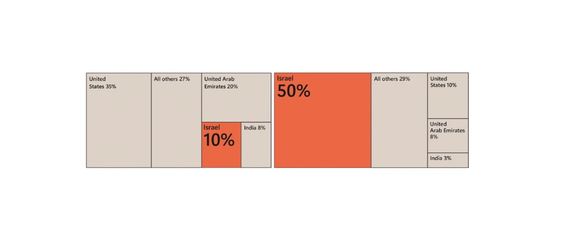
Iran's cyber efforts are not confined to Israel. The report adds that Iranian and Russian actors are leveraging the ongoing conflicts to spread "divisive and misleading messages through propaganda campaigns" beyond the immediate geographical boundaries of the conflicts.
Microsoft emphasized the continued targeting of the US and Persian Gulf nations, particularly the UAE and Bahrain due to their normalization of ties with Israel.
Cyber defense chief Gaby Portnoy warned in June that since the outbreak of the Gaza war on October 7, cyberattacks by Iran have become more aggressive, targeting not only Israel but also its allies.
“We have identified that Iran is attacking its allies and other countries for information extortion and damaging digital services,” said Portnoy, head of the Israel National Cyber Directorate (INCD), at the Cyberweek annual conference held at Tel Aviv University.
Portnoy warned that the information stolen from government systems is then used for Iranian cyberterrorism, making Iranian cyber aggression "an international problem, not only an Israeli one, and therefore the solution needs to be international".
Also in August, Microsoft released its Threat Intelligence Report, which provided a comprehensive analysis of how various groups orchestrated influence campaigns aimed at swaying voters, particularly in swing states.
These operations were complemented by intelligence-gathering activities on political campaigns, potentially establishing a foundation for future interference, it said.
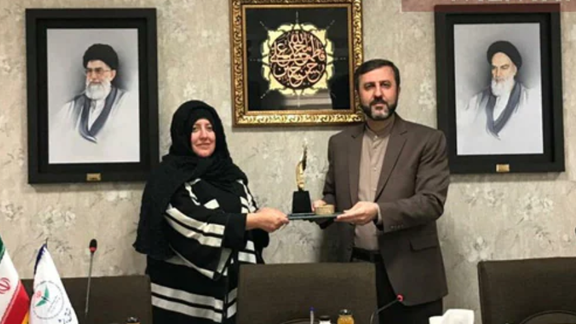
Canada designated Samidoun, a pro-Palestinian group responsible for leading "death to Canada" chants and burning the Canadian flag during an anti-Israel protest in Vancouver earlier this month, as a terrorist entity on Tuesday.
Canada's move was made alongside the US Treasury Department's decision to list the group as a specially designated global terrorist entity.
Samidoun, which means "the steadfast ones" in Arabic, had been registered as a non-profit in Canada since March 2021.
"Violent extremism, acts of terrorism or terrorist financing have no place in Canadian society or abroad," Canada's Public Safety Minister Dominic LeBlanc said in a statement.
"The listing of Samidoun as a terrorist entity under the Criminal Code sends a strong message that Canada will not tolerate this type of activity, and will do everything in its power to counter the ongoing threat to Canada’s national security and all people in Canada.”
The US and Canada allege that Samidoun has links with another terrorist-designated group, the Popular Front for the Liberation of Palestine (PFLP).
Samidoun describe themselves on their official website as being advocates for the release of Palestinian prisoners. The organization did not immediately respond to an Iran International request for comment.
According to Public Safety Canada (PSC) many of those prisoners have ties to assassinations and attacks against Israel.
The PSC says Samidoun has been operating since 2011 and has 20 chapters around the world, including Iran, which Canada designated as a state supporter of terrorism.
Elham Abedini is listed as the coordinator of Samidoun's Iran chapter on Samidoun's official website.
NGO Monitor, a research institute that has been investigating and raising concern over Samidoun to governments around the world since 2018, says the group has an informal connection to the Islamic Republic of Iran through a shared ideology and Iran's pursuit of soft power.
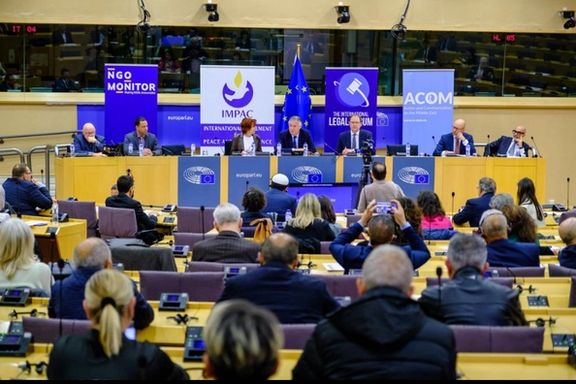
The non-profit's communications director Itai Reuveni told Iran International that Iran uses groups like Samidoun to exert its ideology and influence in the West without revealing themselves as the source.
"This fits to the Iranian practice to only use proxies. Samidoun is part of the proxies. Not just Hezbollah and Hamas, but also through soft power proxies " says Reuveni.
The anti-west, anti-Israel and pro-Islamic Republic narrative fits in with Iran's narrative that it wants to export through groups like Samidoun, who have direct access to the West, Reuveni added.
In July, a top US intelligence official revealed that the Iranian government provided financial support for the pro-Palestinian demonstrations rocking US campuses. An Iran International exclusive also found evidence that Iran was behind campus protests rocking McGill university in Canada.
Matthew Levitt, the director of the Reinhard Program on Counterterrorism and Intelligence at The Washington Institute for Near East Policy, said Samidoun was "explicitly active in some of the most vile pro-violence behavior at campus protests. "
Levitt, the author of Hezbollah: The Global Footprint of Lebanon's Party of God, says Iran has definite ties to the PLFP, for which Samidoun was acting as "sham charity" front, according to a US treasury statement on Wednesday.
“Organizations like Samidoun masquerade as charitable actors that claim to provide humanitarian support to those in need, yet in reality divert funds for much-needed assistance to support terrorist groups,” said US treasury official Bradley T. Smith in the statement.
Samidoun and Iran
Samidoun's director, Charlotte Kates, accepted an official "human rights award" in Iran on August 4th, an accolade that was also bestowed on the secretary-general of militant group Palestinian Islamic Jihad (PIJ).
Kates also appeared on Iran State TV, where she praised Hamas’ Oct. 7 attack on Israel.
“I spoke about the brave, heroic October 7 operation and the legitimacy of the resistance,” Kates said, dedicating the award to the “martyrs and prisoners of Palestine.”
In a March 2024 Samidoun-hosted webinar, Kates praised Hamas as “the people that are on the frontlines, defending Palestine and fighting for its liberation".
Kates is also under a hate speech investigation in Canada for praising the attack.
Samidoun's website covered Kates's meeting with Kazem Gharibabadi, Iran's Secretary-General of the High Council for Human Rights at the awards ceremony in Tehran. Kates also took part in a joint live interview with Gharibabadi.
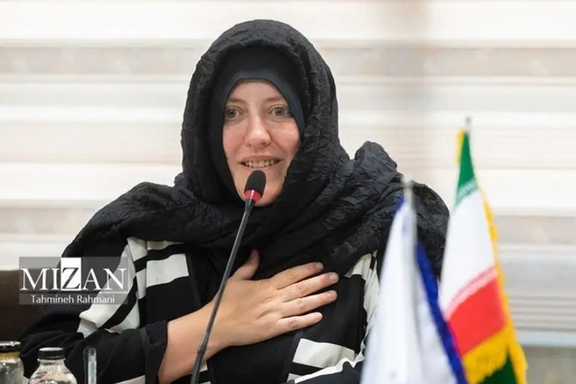
The existence of Samidoun's Tehran chapter and their participation in Iranian state events could not happen without the Iran government's approval, says NGO Monitor's Reuveni.
Palestinian Islamic Jihad, the PFLP, and the Popular Resistance Committees have themselves cited a relationship with Iran including military support.
Kates's husband, Khaled Barakat, also a director of Samidoun, was identified by the US treasury statement as allegedly backing the fundraising and recruitment efforts to support the PFLP's "terrorist activity against Israel". Israeli security service Shin Bet alleges that Barakat is an active senior member of the PFLP.
The PFLP operates in Gaza and the West Bank and participated in attacking Israeli civilians on Oct. 7, the treasury department added.
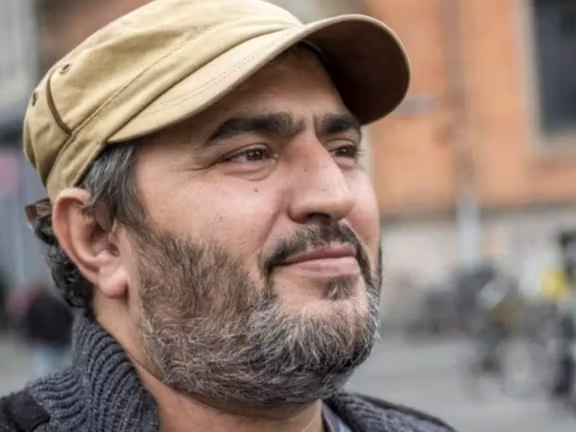
Some Iran watchers like Jason Brodsky say that the PFLP's direct links to Iran are evidence enough linking Samidoun to the Islamic Republic.
Brodsky, policy director of United Against Nuclear Iran (UANI), says Kates' official visits to Iran, appearance on state TV and meeting with high-level officials like Iran's Judiciary Chief Gholamhossein Mohseni Ejei points to an official link with the Islamic Republic.
In 2011 by the United States Department of State and the European Union sanctioned Ejei for his role in suppressing the 2009 Iranian presidential election protests.
"My concern is that the Islamic Republic likes to cultivate these individuals who have access to the West," Brodsky said.
"She is engaged in messaging that is very much in line with the Islamic Republic's ideological outlook," added Brodsky.
According to NGO monitor, Samidoun does not publish financial information, and is only registered in Vancouver, British Columbia.
However, Samidoun is a fiscally sponsored project of the Alliance for Global Justice (AFJG), an Arizona-based organization. The AFJG also is a fiscal sponsor for left-wing initiatives including the Palestinian Campaign for the Academic and Cultural Boycott of Israel (PACBI).
In May 2019, PayPal, DonorBox, and Plaid shut down online donations to Samidoun due to its alleged links to the PFLP.
Samidoun has also been listed as a terrorist entity in Israel and banned in Germany and the Netherlands. The Dutch parliament voted to designate Samidoun a terrorist organization this week.
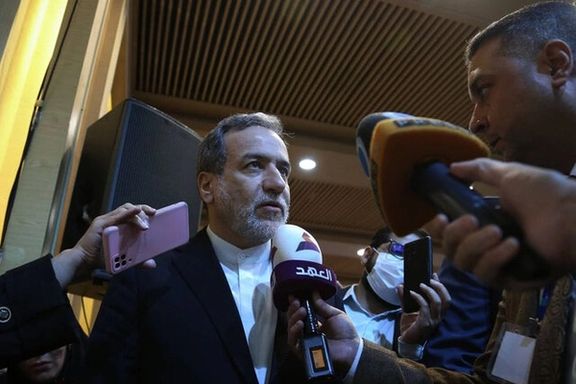
Iranian Foreign Minister Abbas Araghchi has departed for Jordan, advancing his Middle East tour to rally support among regional countries as Tehran braces for a promised Israeli retaliatory strike.
The overarching message from his previous meetings, Araghchi has reaffirmed Iran’s position that it "does not want war" but is "fully prepared for a war situation."
Following visits to Lebanon, Syria, Saudi Arabia, Qatar, Iraq, and Oman, Iran’s top diplomat will continue to Jordan, Egypt, and Turkey.
While Iran has actively tried to engage in regional diplomacy to counter Israel's actions and mitigate US influence, one former Iranian diplomat says the state’s strategy is bound to fail.
In an interview with the Iranian news site Khabar Online, Iran’s former ambassador to Jordan, Nosratollah Tajik, argued that the Islamic Republic cannot realistically expect neighboring countries to fully align with its stance against Israel.
Tajik says that Tehran lacks a comprehensive approach that aligns with the priorities of neighboring states, stating that many – particularly Saudi Arabia – are focused on economic stability and are unlikely to adopt an anti-Israel stance just to support Iran's position.
On October 1, Tehran launched more than 180 ballistic missiles at Israel, declaring the strike a response to the recent killings of Hezbollah leader Hasan Nasrallah and Islamic Revolutionary Guards (IRGC) General Abbas Nilforoushan in Lebanon.
Since Israel's vow to retaliate, Prime Minister Benjamin Netanyahu has reportedly assured the Biden administration that any potential strike would target military assets rather than Iran’s oil or nuclear facilities. Prior to that, a top US State Department official told CNN that Israel has given no assurances it won’t target Iran’s nuclear facilities.
"Some think the US has turned a blind eye to Israel's actions! Not at all. The US, with full awareness, has allowed Israel a free hand to undermine Iran’s position in the region, enabling any crimes in Gaza and Lebanon," Tajik further argued in the interview. Currently residing in the UK, Tajik's diplomatic career faced complications following his 2006 arrest there on alleged arms trafficking charges—a case that garnered substantial media attention.
Amid his continuing Middle East tour, Iran’s foreign minister also announced that indirect talks with the United States would not continue, citing the worsening Middle East crisis as a barrier to further negotiations.
"We do not see a basis for these talks until the current crisis is resolved. Afterward, we will decide whether to resume negotiations and in what form they should continue," Araghchi said in Oman, which had previously facilitated indirect talks with the US.
Araghchi also held talks with a senior official from Yemen’s Iran-backed Houthi movement.
The specifics of his discussions with the Houthi official were not disclosed. However, Yemen’s Houthis, along with Hamas in Gaza and Hezbollah in Lebanon, form part of Iran’s so-called “axis of resistance,” a coalition of militant groups aligned against Israel.
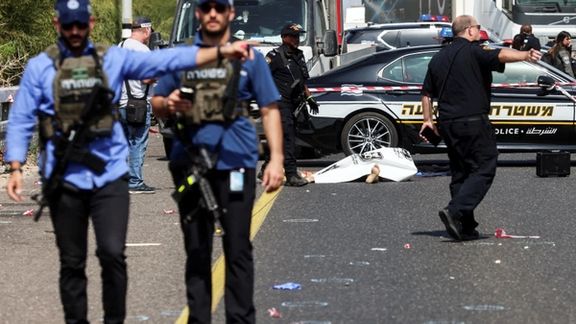
Israeli security services have arrested a Russian-Israeli citizen for being part of an Iran-backed assassination plot targeting a senior scientist for $100,000, the second in just three days.
It is the third such arrest in a matter of weeks. Vladimir Varehovskim 35, from Petah Tikva in central Israel, is alleged to have agreed to carry out the assassination and now faces a court hearing on Wednesday, October 16.
In a joint operation, Shin Bet and Israel Police uncovered "an Iranian intelligence network working to recruit and activate citizens in Israel," according to a police statement.
“Some of the tasks performed were documented by Vladimir and payment was received for their performance,” a statement from Israel Police said. “The contact between him and the Iranian officials took place in the English language and as part of it he was asked to purchase a dedicated phone.”
After having done a series of smaller operations for Iran such as gathering information about an Israeli entity, hanging banners and spraying graffiti, “Vladimir later agreed to carry out a mission to eliminate an Israeli scientist for the sum of $100,000”, Israel Police said.
Ronen Solomon, an Israeli intelligence and defense expert, told Iran International: “The Iranians are learning from Western intelligence methods which had been taken from Israeli operations in order to target Israeli officials. Iran is also learning from the Russians.”
He said recruitment is being done by a cyber program, the latest suspect being recruited by Facebook. Recent recruits have also been recruited through Telegram.
“The Iranians see Russians as the weak link in Israeli society,” he said, hundreds of thousands having used Israel’s right of return laws for Jews since the fall of the Soviet Union.
“This is the second case in a row, so it could be the same handler in Iran,” he added.
Many of the roughly 1.5 million Russians in Israel are atheist and do not integrate as well into Israeli society as others, preferring to live in areas with large numbers of fellow Russian speakers.
Since the war with Ukraine making travel for Russians increasingly hard, Israel absorbed many more seeking a second passport.
It follows the arrest on Monday of Vladislav Victorson, 30, on charges of orchestrating an assassination plot on behalf of Iran. The Russian, living in the Tel Aviv suburb of Ramat Gan, had been in contact through social networks with a person named "Mari Hossi”, speaking in Hebrew.
Victorson was also accused of agreeing to assassinate an Israeli citizen and throw a grenade at his home, the statement from Israel Police saying he had worked to obtain weapons, including a sniper rifle, pistols and grenades.
He was also accused of having carried out tasks including burying money and burning vehicles in Yarkon Park in Tel Aviv. In addition, he was asked to sabotage communication infrastructure and ATMs as well as set fire to forests.
He is alleged to have recruited two other citizens, including his partner, Anna Bernstein, just 18 years old, who took part in several tasks in the operation.
Israel Police said he was also accused of locating street gangs in order to recruit them to perform additional tasks and photograph demonstrators during protests.
Asher Ben Artzi, the former head of Israel's Interpol, warned: "The Iranian intelligence is quite sophisticated. They are very active."
A closed community, he said Israel's Russians are vulnerable to recruitment. "We can assume that as many of them have a tough life here, they could be more angry at the state of Israel. If you offer such people a lot of money, they don't resist such a temptation," he told Iran International.
"The bottom line is that Iranian intelligence is very dangerous for us," he added as cases of this kind become ever more frequent.
Iran-backed plots recruiting date back more than a decade and have seen Iran hiring a wide spectrum of society, including an orthodox Jew from the religious suburb of Jerusalem, Beit Shemesh, arrested in July. In 2022, a network of Israeli women was uncovered as having been recruited by Iran.
Last month, Israel revealed they foiled an Iranian plot to assassinate top leaders including Prime Minister Benjamin Netanyahu, the head of Shin Bet and the country’s defence minister.
Moti Maman, a 73-year-old Israeli businessman from the city of Ashkelon, was accused of twice smuggling himself into Iran via Turkey to meet with intelligence officials directing the plots from Tehran.
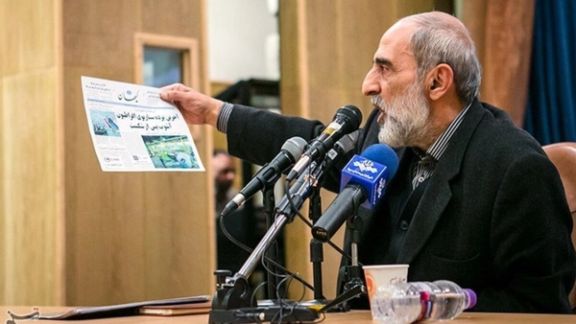
Kayhan daily says Iran must close the Strait of Hormuz in the Persian Gulf to European vessels in retaliation for the European Union’s sanctions on Iran Air, the country’s flagship carrier.
“Europe chose the path of confrontation instead of interaction with Iran by starting a new round of sanctions under the false pretext that Iran has sent missiles to Russia. Now Europe must wait to pay the cost of its decision,” Kayhan argued on Wednesday in an article titled “Europe Shut the Sky to Iranian Flights, Block the Sea to European Ships."
“Iran definitely has more capabilities to put pressure on Europe today in the gambit that they started,” the ultra-hardline daily whose managing editor, Hossein Shariatmadari, is an appointee of Supreme Leader Ali Khamenei, wrote, arguing that preventing European vessels from reaching their destinations in the Persian Gulf will be more costly to Europe than the ban on Iranian flights.
Iran Air, the only Iranian airline operating flights to European Union countries, suspended all its services to Europe due to new sanctions imposed by the European Union that targeted Iran Air, Mahan Air which is partly owned by a Revolutionary Guards (IRGC) linked company, and Saha Airlines, a civil operator owned by the Islamic Republic of Iran Air Force.

The United States and its Western allies accuse Iran of using its civilian flights to send weapons including missiles to Russia for its war in Ukraine. The Islamic Republic denies any missile transfer to Russia.
There have always been allegations that the Islamic Republic uses its civilian fleet for military transfers.
Iran International acquired the audio file of an interview with former foreign minister Mohammad-Javad Zarif in April 2021. In the interview that was never published in Iran, Zarif criticized Qasem Soleimani, the slain commander of the extra-territorial arm of the Revolutionary Guards (IRGC), the Qods Force, of using Iran Air flights for shipments, presumably fighters and weapons, to Syria rather than the allegedly IRGC-linked Mahan Air which he said was less safe.
Mahan Air was designated by the US Treasury in 2011 for "providing financial, material and technological support” to the IRGC. These were followed by bans by several European countries including Denmark and Germany in the following years until the airline lost all its flights to European destinations by Spain joining the embargo in 2020.
Iranian officials and hardliners have periodically called for the closure of Hormuz as retaliation for various Western actions. Around 21 percent of the world's crude oil passes through the straits, heavily patrolled by both Iran and Western navies. This means that a closure of Hormuz will also stop all of Iran's oil shipments and a significant portion of China's oil inports. From January to September, China imported 4.2 mb/d of crude via the Strait of Hormuz, accounting for 43% of its seaborne crude.
Iranians have taken to social media since the announcement of the Iran Air sanctions and the country’s suspension of its flights to European destinations to voice their frustration.
There were unconfirmed reports on social media Wednesday that an Iran Air flight to Turkey was not granted permission to land for several hours due to the EU sanctions.
Iran Air sanctions mean that no Iranian can fly directly to destinations in the Western Hemisphere without using a connecting flight from other regional airports such as those in Turkey, the United Arab Emirates, or Qatar.
Some netizens contend that the suspension of direct flights to Europe will highly affect expatriate Iranians including students and their families, including the elderly and the sick who will find it very difficult to find their way through non-European airports to board connecting flights.
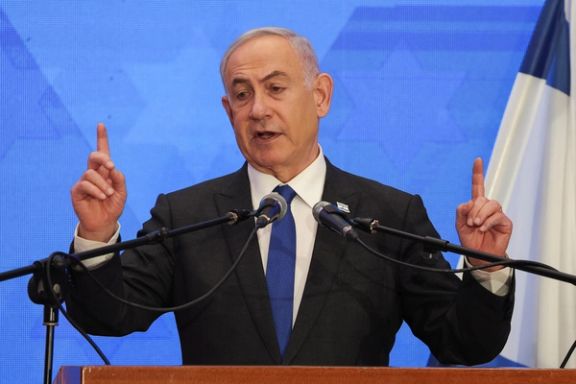
Israel appears closer to showing its hand on how and when it will strike back at Iran as as a critical US election looms, Jewish holidays wrap up and US-Israeli diplomacy accelerates.
Israeli Prime Minister Benjamin Netanyahu has decided on the response to this month’s aerial bombardment from Iran, according to Israel’s Kan 11 News on Tuesday, and the strategy will now be referred to Israel’s cabinet.
Netanyahu's government is made up of a right-wing coalition mostly calling for a tough response to the 181 ballistic missiles launched towards Israel.
It comes as the United States has sent 100 troops and deployed the Terminal High-Altitude Area Defense (Thaad) antimissile battery, ahead of an expected retaliatory strike from Israel on Iran that may provoke yet another attack from Iran.
Prime Minister Benjamin Netanyahu assured US President Joe Biden in a phone call last week that Israel will refrain from attacking Iran's nuclear or energy facilities, US newspapers reported citing officials.
It is not the first time that the Israeli premier is said to have made a plan of action, but as the psychological war between the two sides continues, timing may be key.
Israel is currently in the middle of a month of religious holidays, and after last year’s October 7 attack caught troops off guard amid the final one of the month, many believe that the government is giving the country time to breathe.
Last year's October 7 attack happened in the middle of the Simchat Torah festival, and Israel may be reluctant to invite an escalation to the war one year later.
Also crucial is the US presidential election, which is less than three weeks away.
“The US will want to get this done soon so it’s faded out of the news story before the election. Generally speaking incumbents don’t like wars around elections," said Michael Knights, an Iran expert at the Washington Institute for Near East Policy.
"It’s a distraction and looks like things aren’t under control. So once the holidays are over Israel and the US will want to get this over in a matter of weeks so the US can draw a line under it,” he added.
On Monday, a massive bombardment from Hezbollah saw swathes of central Israel sent to shelters as sirens sounded across most of the region.
Israeli intelligence and defense analyst, Ronen Solomon, predicts Israel will in fact carry out a multi-dimensional attack which may already have begun.
“Maybe one of the responses was the explosion we saw this week at the iron market in Tehran,” he explained, referring to a mysterious fire that broke out in a market housing companies manufacturing parts for Iran’s nuclear development.
“Those facilities supporting the nuclear project could well have been part of this multi-dimensional attack,” he added. “It means that Isfahan can also be a target, with Ministry of Defense facilities for developing a nuclear bomb. It could be hit without being considered a nuclear facility like Natanz.
Other options are the UAV manufacturing facilities in Isfahan, Solomon said, and the missile launching sites in Tabriz which gives Iran a unique position to attack Israel from north to south.
Psychological warfare
An Israeli official, speaking on condition of anonymity, told Iran International that the delay could as easily be a part of the psychological war as the ongoing discussions with the US. Biden has said sending the THAAD system to Israel is to defend Israel, but said he will not support a direct hit on Iran’s nuclear facilities.
“Israel will keep its cards close to its chest and strike when it’s ready. Bibi knows that timing is key and is the master of psychological warfare with Iran."
It took Iran over two months to avenge the killing of Hamas's political leader, Ismail Haniyeh, in an IRGC compound in Tehran, and Iran's retaliation came only after an airstrike killed Hezbollah leader Hassan Nasrallah in Beirut.
A year's worth of bombardments on Israel from rockets, missiles and drones launched by Iran itself and its regional allies Hamas in Gaza and Hezbollah in Lebanon has left Israel facing a looming shortage of interceptor missiles, the FT reported.
Since the Hamas invasion now known as the Black Sabbath, over 20,000 rockets and missiles have been fired from Gaza and Lebanon alone.
So far, the Iron Dome has shot down the short-range rockets and drones from Hamas in Gaza, but it is the system known as David’s Sling which has intercepted the heavier rockets from Hezbollah’s huge arsenal in Lebanon.
In the multi-layered system, the Arrow defence has been used to block the ballistic missiles from Iran, but several of these in the recent attack struck, more than 30 of them hitting Nevatim air base alone, as shown in open source analysis.
Another missile exploded less than a kilometer from Israel’s foreign intelligence agency, Mossad.
Drone attacks
Attacks have also come from Yemen, Syria and Iraq, with low-quality drones also penetrating the country’s air defences. On Sunday, a drone from Hezbollah killed four soldiers and injured dozens more when a precise hit on a military base caught soldiers in the mess eating dinner.
Solomon, who spent 10 years as an advisor to one of the military's intelligence units and is writing a book on Iran’s nuclear program, said bolstering Israel’s defences is key as tensions between the two archenemies escalate.
“Israel is using hundreds of their interceptors by the day against Hezbollah, but the problem is not the rockets, but the missiles. What we really need the THAAD for is against Iran. We would expect double the kind of attack from before.”
However, Dana Stroul, a former senior US defence official with responsibility for the Middle East, told the FT, “Israel’s munitions issue is serious”.
She said: “If Iran responds to an Israel attack [with a massive air strike campaign], and Hezbollah joins in too, Israel air defences will be stretched,” she said, adding that US stockpiles were not limitless.
“The US can’t continue supplying Ukraine and Israel at the same pace. We are reaching a tipping point.”
Boaz Levy, chief executive of Israel Aerospace Industries, a state-owned company which makes the Arrow interceptors used to shoot down ballistic missiles, admitted in an interview with the FT that operations were running triple shifts to keep production lines running.
“Some of our lines are working 24 hours, seven days a week. Our goal is to meet all our obligations,” Levy said, adding that the time required to produce interceptor missiles was “not a matter of days”. While Israel does not disclose the size of its stockpiles, he added: “It is no secret that we need to replenish stocks.”